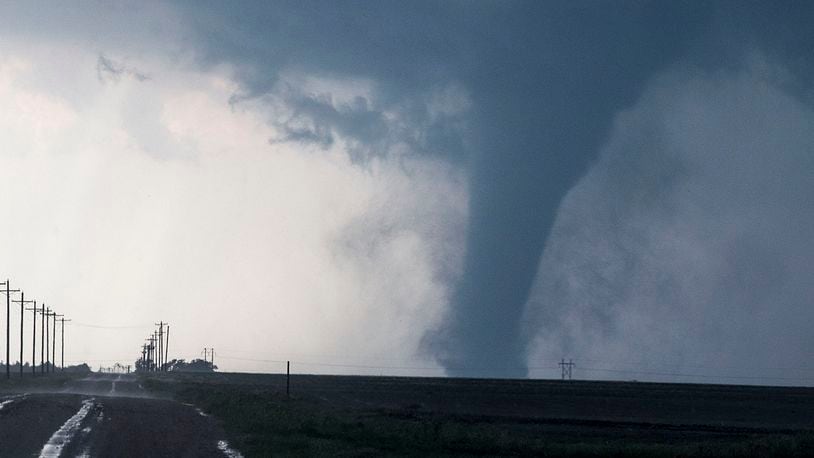A tornado "watch" is issued when tornadoes are possible in and near the watch area. It does not mean that they will occur. It only means they are possible.
Here are some other things to keep in mind during the storm:
Where should you take shelter?
- Storm cellars or basements provide the best protection.
- If that's not an option, go into an interior room or hallway on the lowest floor.
- In a high-rise, go to a small interior room or hallway on the lowest floor.
- Stay away from windows, doors and outside walls. Stay away from corners; they attract debris.
- A vehicle, trailer or mobile home does not provide good protection.
- If shelter is not available, lie flat in a ditch or other low-lying area. Do not get under an overpass or bridge
The American Red Cross also suggests that you:
- Listen to local news or a NOAA Weather Radio to stay informed.
- Know your community's warning system, because they aren't all the same.
- Practice tornado drills so children know what to do
- Remove diseased and damaged limbs from trees before high winds hit.
- Move or secure lawn furniture, trash cans, hanging plants or anything else that can be picked up by the wind and become a projectile.
- Watch for tornado danger signs: dark, often greenish clouds; wall cloud – an isolated lowering of the base of a thunderstorm; cloud of debris; large hail; funnel cloud – a visible rotating extension of the cloud base; roaring noise.
After the storm:
- Finding important documents (deeds, insurance, etc.) will be easier if you've stored them in a safe-deposit box or other safe place.
- Use bottled water or boil tap water before drinking it. Discard any food that comes in contact with contaminated water.
- Inspect your home for damage and take steps to prevent more damage (cover holes with plywood or plastic).
- Stay out of damaged buildings and away from downed power lines.
- You can let family know you’re safe by registering on the American Red Cross Safe and Well website. You can also call 1-866-GET-INFO (1-866-438-4636) to register.
About the Author
